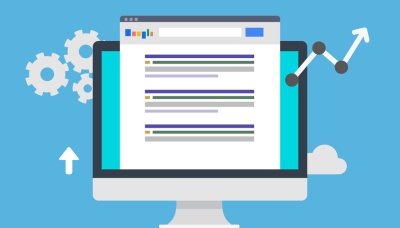Getting to the top of Google is one of the best ways to increase visibility for your site and to bring direct traffic. But while this is a great objective, the problem is that there is no way to guarantee success when it comes to getting to the top. SEO is only effective some of the time and you can end up investing a lot of time and effort into it without getting the results you’re looking for.
This is where ‘paid search’ comes in. But what is this, and why is it so useful? Paid search generally refers to the process of paying to get to the top of Google – to get in the ‘sponsored results’ section. This means using Google AdWords, a form of PPC advertising (pay per click) that lets you pay to appear at the top of specific search results. Using PPC in this way has a lot of benefits, but which is better? Organic SEO or paid search?
Organic vs Paid Search
98% percent of customers use search engines to find products and brands when shopping or looking for services. This is an overwhelming majority and that makes it very important for any business with an online presence to ensure that they are visible on the top search engines for the most popular keywords.
As we’ve seen, there are two ways to get yourself onto the SERPs (Search Engine Results Pages), and those are to pay for advertising (AdWords) or to get there 'organically' through SEO (Search Engine Optimisation). The question you'll be asking yourself as a business owner, is which is right for you? To start to answer that question, let's go over what each of these involves quickly.
SEO
SEO involves a set of techniques designed to make a website appear more attractive and relevant to Google for some specific search terms. The process begins with the identification of these terms, followed by on-site optimisation and off-site link building. On-site optimisation means building an SEO-friendly site to begin with, updating regularly with highly relevant content and utilising things like site maps and sharing widgets for popular social media sites. Off-site link building means getting relevant and high-authority sites to link out to your site, often in exchange for 'guest posts'. Social media marketing and 'link baiting' can also be used to generate links on other sites.
AdWords
AdWords meanwhile is an advertising service provided by Google that allows users to pay for their ads to appear on specific SERPs. Because you can choose which search terms you want to advertise on, this is a highly targeted form of advertising. AdWords is also an example of 'PPC' advertising, meaning you only pay when someone actually clicks on your ads and that you define how much you're willing to 'bid' to appear in a certain position. The more you pay, the more often your advert will show rather than the competition.
Making the Choice
Both of these methods will achieve a similar end for your business – your links highly visible on search pages. At the same time though there are some distinct advantages and disadvantages to using each.
SEO is the better value-for-money option in that you pay for the services initially and potentially keep your listing at the top of the SERPs for a long time after you stop. PPC on the other hand requires constant payment and you lose the benefits as soon as you stop paying. For highly competitive search terms you will need to bid fairly high amounts to secure much visibility.
With SEO there is no guarantee that you'll get to the top spot in the SERPs. However much work you put in, there's a possibility the competition will put in more work. That said though, discerning visitors may be more inclined to click links that appear organically versus those 'sponsored links'. How often do you click adverts while browsing the web?
On the other hand, a benefit of AdWords is that the results are immediate ensuring that you can start reaping the benefits of that increased exposure right away. This actually makes it a very useful tool for researching what the most valuable search terms might be for your particular business and finding out which will offer the best ROI. You can that way use it in tandem with SEO – by researching the most valuable search terms to target then using optimisation to reach that top spot organically. Why choose one when you can have both?
And while you’re at it, look into the many other forms of PPC too!
